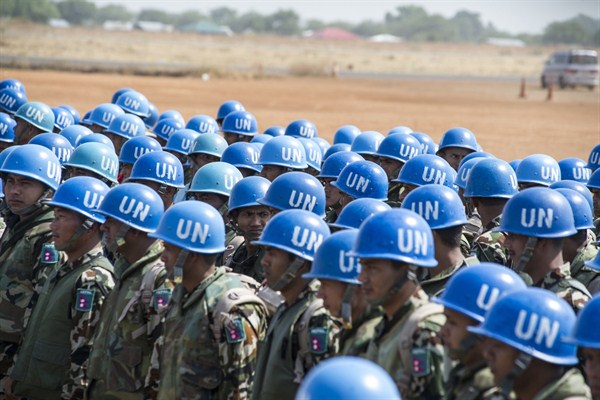Last month the United Nations released a policy paper, “Uniting our Strengths for Peace,” on the future of peacekeeping. Written by a panel of 16 experts, including former East Timor President Jose Ramos Horta, the report is a subtly subversive summary of the current problems with U.N. peace operations.
To further explore this subject, World Politics Review partnered with the Global Dispatches podcast to produce this interview with WPR columnist Richard Gowan. Gowan and host Mark Leon Goldberg discuss U.N. peacekeeping, the challenges it faces and how current trends in global security will force the U.N. to adapt.
For more background on the U.N. and its peace operations see Gowan’s columns from June 8 and April 20, as well as Ellen Laipson’s June 23 briefing.

